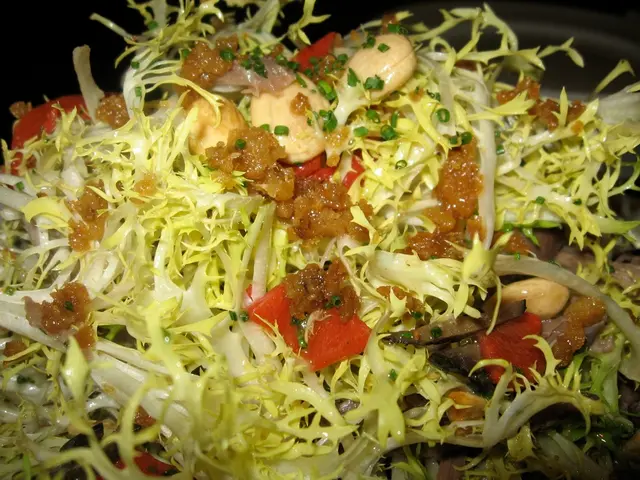Advancements in Culinary Arts: Exploring Molecular Gastronomy and Emerging Food Technologies
Innovations Transforming the Culinary Landscape
The world of food is constantly evolving, with groundbreaking advancements in technology and culinary techniques revolutionizing the way we cook, eat, and experience food. From molecular gastronomy to vertical farming and smart kitchen appliances, these innovations are shaping the future of food.
However, the latest developments in the food industry extend beyond these well-known trends. The rise of cultivated (lab-grown) meat, advanced plant-based and mycelium-based alternatives, AI-driven food tech, precision fermentation, and enhanced supply chain transparency are transforming the culinary landscape in significant ways.
Cultivated Meat (Lab-Grown Meat): This technology grows meat from animal cells without raising or slaughtering animals, drastically reducing greenhouse gas emissions, land use, and water consumption compared to conventional meat production. Startups like Cellcraft (UK), Hyperion FoodTech (Japan), and Biokraft Foods (India) are leading the charge in cultivated meat, creating products with real-meat texture and taste.
3D Food Printing and Mycelium-Based Foods: Companies such as Revo Foods (Austria) and Esencia Foods (Germany) use 3D printing and fermentation of fungi (mycelium) to create plant-based seafood and other whole-cut meat analogs. This approach avoids overfishing and promotes efficient use of agricultural waste while delivering meat-like sensory experiences.
Precision Fermentation for Sustainable Ingredients: Companies like ÄIO (Estonia) produce sustainable fats and oils by fermenting sawdust and agricultural waste, turning non-food biomass into valuable food components, reducing reliance on environmentally damaging crop or animal fats.
Artificial Intelligence (AI) in Food R&D and Supply Chains: AI platforms are accelerating innovation in product development, optimizing ingredient usage, enhancing food preservation, and providing real-time consumer insights. This leads to healthier, safer foods with lower waste.
Enhanced Supply Chain Transparency: Technologies like blockchain provide consumers with reliable information on food origin and journey, enabling ethical choices and holding producers accountable for sustainability practices.
Smart Farming and IoT: These technologies optimize livestock management by improving animal welfare and feed efficiency, reducing waste and resource use on farms, and aligning meat supply chains with sustainability goals.
Plant-Based Diets Growth: The rise of plant-based diets reduces dependence on animal agriculture, lowering greenhouse gas emissions and land use, and improving health outcomes. Companies like Beyond Meat and Impossible Foods have developed plant-based burgers, sausages, and chicken nuggets that resemble animal-based products, offering a more sustainable and cruelty-free alternative to traditional meat.
Together, these technologies address ethical concerns about animal welfare and environmental sustainability by innovating food production processes, ingredient sourcing, and consumer transparency, thus shaping a more sustainable and ethical culinary future.
In addition, vertical farming uses significantly less water and land compared to conventional agriculture, making it a more sustainable solution for food production. Vertical farms can be set up in urban areas, reducing the need for long-distance transportation and minimizing the carbon footprint associated with traditional farming.
Smart kitchen appliances are also becoming increasingly common, offering features like voice control, recipe suggestions, and the ability to connect with other devices in the kitchen. Smart ovens can be controlled through smartphone apps, enabling users to preheat, monitor cooking progress, and receive notifications when the food is ready. Smart refrigerators can track inventory, suggest recipes based on available ingredients, and even place grocery orders automatically.
3D food printing has the potential to revolutionize the way we prepare and present food, address food waste, and cater to specific dietary requirements.
Vertical farming, smart kitchen appliances, and other emerging technologies are transforming the way we produce, prepare, and consume food. These innovations contribute strongly to sustainability and ethical food choices by reducing environmental impact, minimizing animal cruelty, and optimizing resource use. The future of food is an exciting and ever-evolving landscape, with countless possibilities for innovation and positive change.







